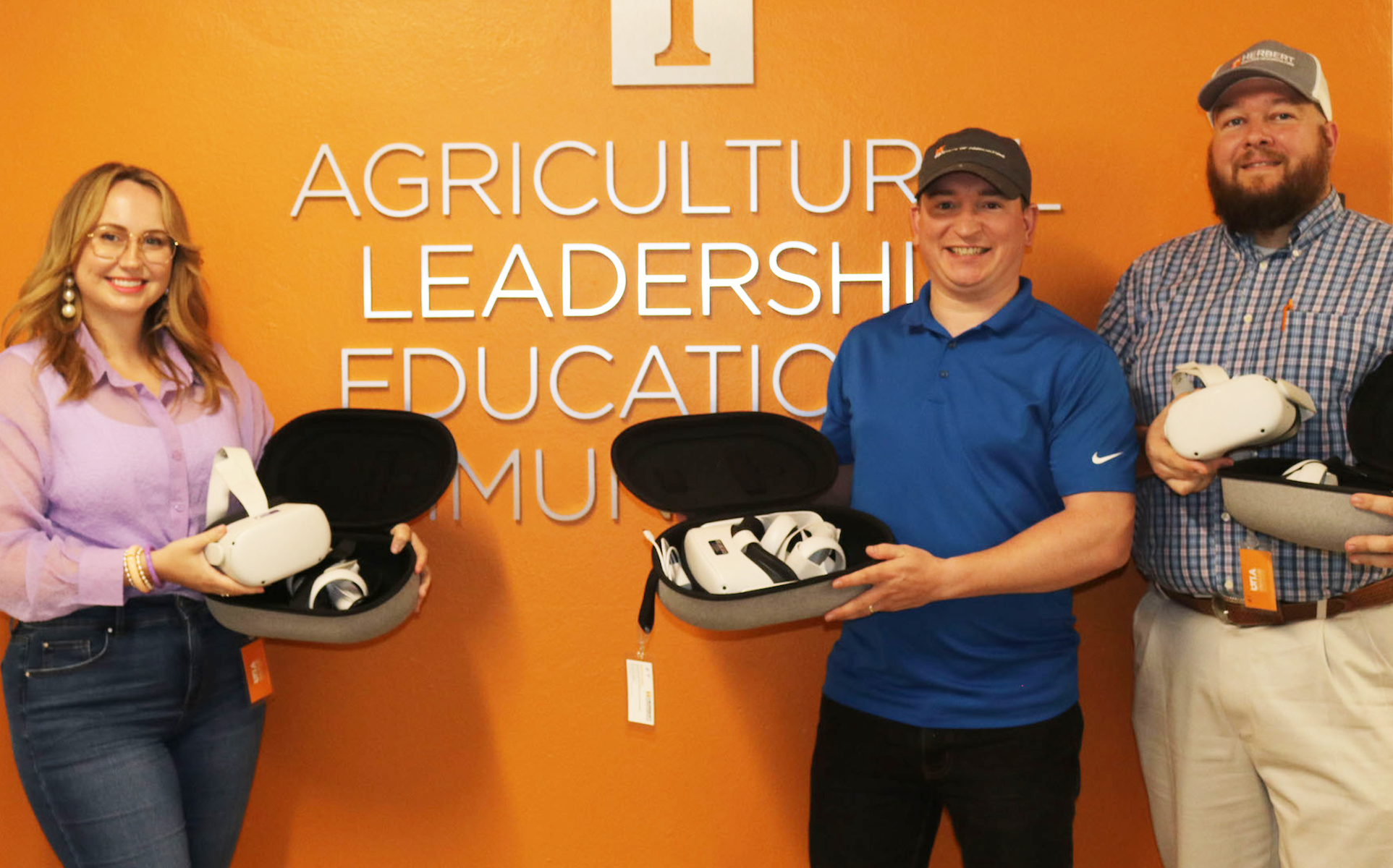
UT Researchers Study How VR Can Improve Learning, Accessibility
KNOXVILLE, Tenn. — Researchers from the University of Tennessee Institute of Agriculture have received a $500,000 USDA-NIFA grant to develop virtual reality (VR) experiences for agriscience education and analyze the benefits of using these types of activities in the classroom. The project, led by Tyler Granberry, assistant professor in the UT Department of Agricultural Leadership, Education and Communications, will train educators on how to use VR to improve learning and engagement while also enhancing their students’ agricultural literacy and exposure to agricultural careers.
VR systems deliver immersive experiences to users through advanced interactive technology, providing realistic digital learning environments for students and educators without requiring travel from the classroom. By immersing students in agricultural experiences, VR could improve academic performance thanks to convenient access to simulated tours, demonstrations and other learning opportunities that might have been previously inaccessible.
Researchers will create the Agriscience Metaverse Academy, a learning program that brings together 28 agriscience educators from Tennessee and Nebraska. These participants will attend a five-day in-person workshop where they will receive training on integrating VR technology into their classes and create curriculum that utilizes the metaverse, a fully interactive online environment. Each teacher will then receive a class set of 11 Meta Quest 2 VR headsets and a 360-degree camera to be used as they implement their new curriculum. Throughout the following school year, researchers will analyze the benefits of VR learning to determine whether the technology is improving agricultural literacy and increasing student interest in these careers.
“It is our role as educators to create an engaging and equal learning environment that not only teaches, but also inspires,” says Granberry. “Since the agricultural industry is highly geographically diverse, VR technology can provide a deeply immersive way for students of all backgrounds to immediately be transported from their classroom to a farm, forest or production center across the world. The implications of this technology are staggering, not just to increase agricultural literacy, but also to enhance experiential learning in ways we never thought possible.”
Granberry will be leading the project along with Jamie Greig, assistant professor in the UT Department of Agricultural Leadership, Education and Communications; Taylor Ruth, assistant professor in the UT Department of Agricultural Leadership, Education and Communications; and Nathan Conner, professor in the Department of Agricultural Leadership, Education and Communication at the University of Nebraska-Lincoln. The three-year study is funded by USDA-NIFA through the Professional Development for Agricultural Literacy program.
Through its land-grant mission of research, teaching and extension, the University of Tennessee Institute of Agriculture touches lives and provides Real. Life. Solutions. utia.tennessee.edu.